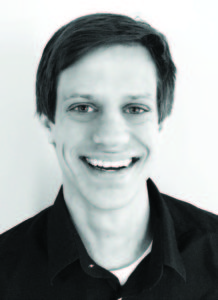The Personal Geography of Deconversion

Until I was nine, the church we attended was forty-five minutes away; we went twice every Sunday, so altogether that was three hours spent in a car. Those trips are vivid in my mind: passing and waving at the houses of people we knew, the sweet smell of the Kellogg’s cereal factory, the longer country drives we’d take after the afternoon service, meandering our way home and stopping at every natural location that grabbed our attention. Sunday drives helped me see the world in a comforting way, and expanded it beyond my tiny town.
Geography unfolds differently for everyone, but for the religious, the world turns around a pretty reliable center: the place of worship. We all know about pilgrimages, but hitting the road pretty much made Christianity. It was a committed salesman and the roads of Rome that set up and unified sects all over Eurasia, making a religion accessible to everyone from the Jew to the Greek. Church is a tie that binds people from everywhere, and can give a common meaning to people thousands of miles apart.
In a narrow way, these ties taught me a lot about geography. Never mind geology or biology—the creationism that informed my understanding of the age and function of the earth didn’t stand a chance against the Christian Scientists, the “wolves in sheep’s clothing,” who preached compatibility between scripture and scientific evidence. My knowledge of physical geography was built on a weak foundation. It was my mental geography that was strong and that overwhelms me still, long after leaving the church.
My denomination was a network of conservative Protestant churches, and though most were located in my province of Ontario, Canada, these churches dotted every corner of the globe—the United States, Australia, the Netherlands, Brazil, the Dominican Republic, along with missions all over Africa and Asia. Anywhere they were, there I could call home, even if I had no intention of ever going to Brazil. Having church as the center expanded my known world but made it smaller, too: where we could vacation, where we could move, and where my dad looked for work were all in relation to a church that preached the correct interpretation of scripture.
Having withdrawn from the faith community some time ago, it’s not the admonishments of my former fellow churchgoers that nag at me the most. Nor is it some sort of altered relationship with friends and family who still believe. The hardest thing to reconcile is the geography I had built in my mind for twenty years.
Churches make wide communities, and particular interpretations and beliefs can compel people to come from all over to worship in the way they think is best. This meant that even if you didn’t live in or frequent a certain part of town, you knew families who did. Nestled in every neighborhood was someone you knew, someone you might encounter on a walk or a bike ride. It added life to what otherwise would have been impersonal suburbia, and this life was infused with sanctity.
I don’t see that sanctity anymore. With this comes what I think are new freedoms, what people from my old community would say come at the cost of one’s soul. I can travel to places without thinking about where I might find a church. I can take jobs that would require me to work on Sunday. I can eat at restaurants on a Sunday, go to the zoo on a Sunday, and spend a Sunday morning at a farmer’s market. Coming after a lifetime of routine, of “remembering the Sabbath day by keeping it holy,” it still feels strange. The nostalgia of those post-church country drives may never go away.
And there is no longer the familiar constant of a church’s neighborhood—the rundown, shaggier part of town where our church shared a parking lot with a garage that later became a motorcycle gang’s clubhouse; the cozier, tree-shaded suburban location of the second, where a local school provided a little extra parking for those who were running late; or the pleasant, open-spaced rurality of the building my parents still attend faithfully.
As I get to know more about the world, how it’s constructed, how it functions, I learn more about people. I break down the barriers put up to preserve my religious worldview. I know communities can be built around a lot more than just a unified belief in a higher power, and experiences make once-foreign places more warm and full of life. Slowly, my mental geography changes and expands. And every day, the world becomes organized in a beautiful way that’s more true to myself.
